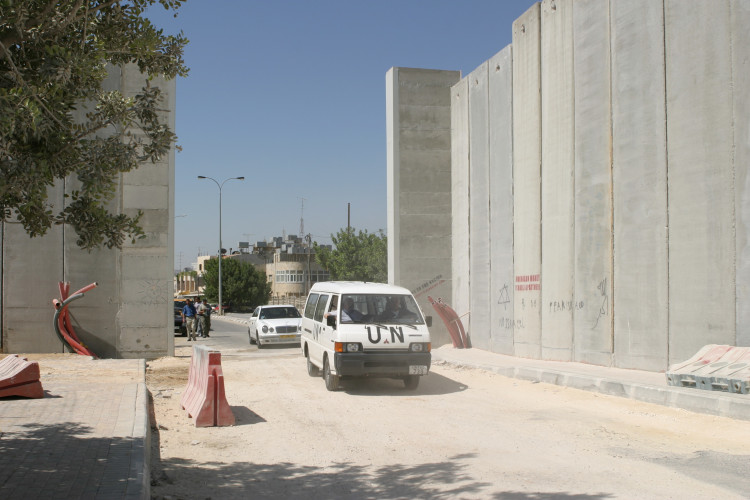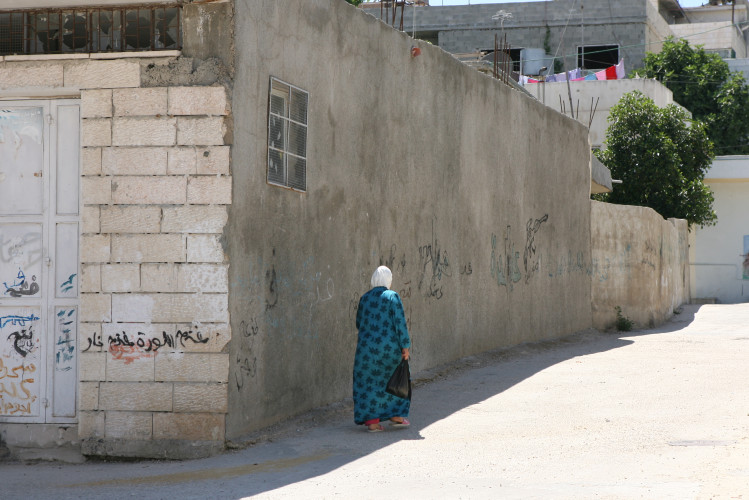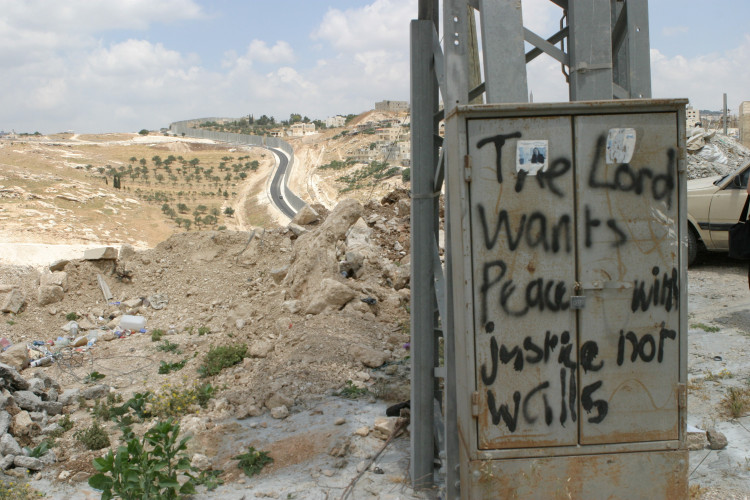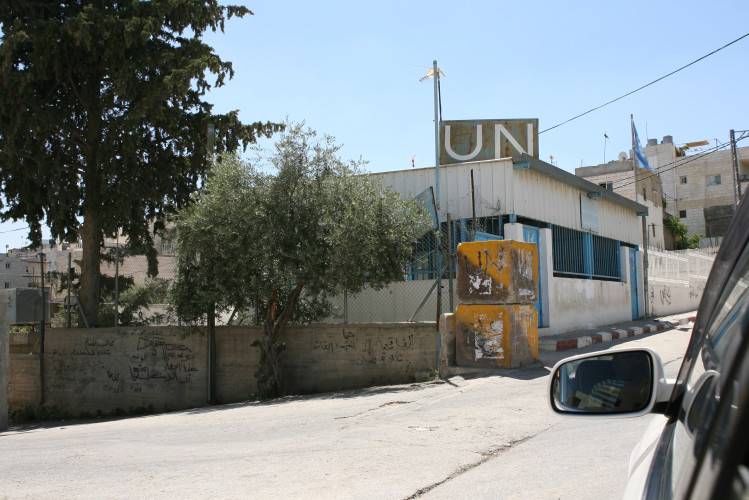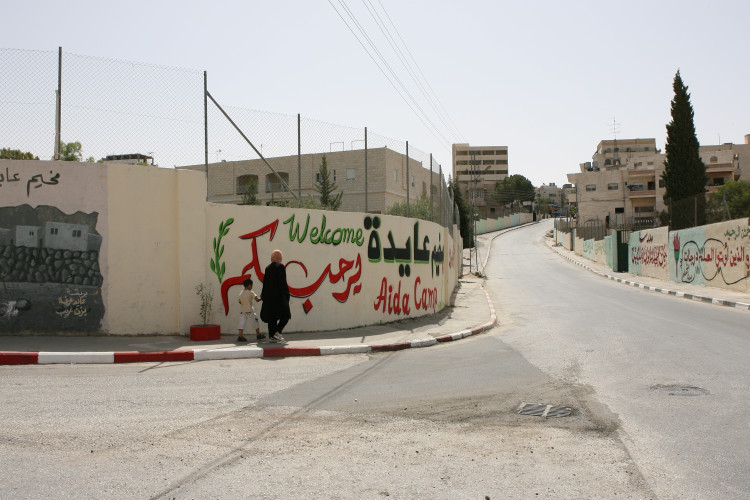From the Open-Publishing Calendar
From the Open-Publishing Newswire
Indybay Feature
Israeli Accusations Against UNRWA Debunked as Gaza Needs Grow
In examining its role in Gaza since the October 7 invasion into Israel by Hamas and its aftermath, on May 20 a distinguished panel of experts at the Stimson Center, a Washington think tank, stressed both the agency’s importance and how it has responded to Israel’s continued accusations of being complicit with the terrorist organization.
WASHINGTON (05-20) – Since it was first founded by the United Nations in 1949, UNRWA (United Nations Relief and Works Agency) has been no stranger to controversy and criticism for its work in Gaza and the Middle East. Its original mandate was to aid refugees displaced and expelled from Palestine in 1948 during the war establishing the state of Israel.
Today, the agency supports some six million refuges across the Middle East in Jordan, Syria, Lebanon, Gaza and the West Bank including East Jerusalem. In pre-war Gaza, alone, it provided food for 75 percent of residents, operated schools that educated 300,000 children up to the 9th grade, offered 22 health care centers, along with social services.
Critically, UNRWA’s pre-war workforce of 13,000 has now shrunk to 2,500 employees as the need for its services continue to grow.
In examining its role in Gaza since the October 7 invasion into Israel by Hamas and its aftermath, on May 20 a distinguished panel of experts at the Stimson Center, a Washington think tank, stressed both the agency’s importance and how it has responded to Israel’s continued accusations of being complicit with the terrorist organization.
Most importantly, as cited by the panelists, is how the “fog of war” has been instrumental in Israel’s accusations that UNRWA has colluded, worked with or otherwise assisted Hamas.
In January, Israel named 14 UNRWA workers whom it accused of being tied to Hamas without offering any proof, causing the withdrawal of contributions from donors and limiting work the agency could perform during this crucial time.
As a result, 16 donor countries suspended their contributions including the U.S. who contributes 30 to 40 percent of the agency’s annual budget. William Deere, UNRWA Director in Washington, said that an independent outside investigation into the accusations, by former French Foreign Minister Katherine Colonna conclude that “no evidence had been provided” that any of the employees named had participated with or was associated with Hamas’ October 7 attack on Israel.
Deere also spoke of two other instances in which Israel accused the agency of colluding with Hamas. One claim was that a Hamas tunnel was discovered under an UNRWA building and, in a second instance, that Hamas was using the agency’s vehicles. An UNRWA investigation later concluded that the tunnel was over 60 feet below the building with no connection to the structure, and that Hamas, ever opportunistic, had commandeered the UN vehicles from an abandoned agency warehouse.
He went on to explain that whenever they discover tunnels under their facilities, they inform Israel and, at great personal risk, have their employees fill them with cement.
In the aftermath of the report’s release, most donors have returned except for the U.S. and the U.K. Presently, the agency has enough cash to operate until the end of June. It was just announced today by the UN that it has “suspended” distribution of food in Rafah due to the lack of supplies and because of security concerns.
On the matter of humanitarian aid, Deere said that “There have only been 80 trucks at Rafah and Karem Shalom that have entered Gaza since May 5th” noting that the need is for at least 500 trucks per day.
Speaking on another important function of UNRWA, he discussed managing the UN fuel distribution program, so critically important in operating desalination plants, hospital generators and for delivering humanitarian aid. He characterized fuel distribution presently as “Doling it out with an eyedropper” by noting that the 78,000 liters received a few days ago was well below the 200,000 liters a day needed to “Sustain humanitarian operations.”
Stimson Center scholar Andrew Hyde spoke on UNRWA’s funding by saying that “Money is politics” and that the agency is funded by voluntary contributions. With no consistent revenue stream, UNRWA is not able to plan too far in advance for its programs and offerings, noting, too, that the last administration “…pulled the funding for UNRWA for a couple of years.”
Hyde also cited that the pause in funding, which negatively impacted the agency, is reflective of issues that Israel has had with UNRWA such as “mistrust, neutrality and…bias against Israel and Israel’s interests.”
Panelist Merissa Khurma of the Wilson Center spoke of her experiences with UNRWA outside of Gaza in Jordan and Lebanon. In speaking about Jordan with 2.4 million registered Palestinian refugees in 10 camps, she said that UNRWA provides essential services to them and more recently to an additional one million Syrian refugees. Many of the Palestinian refugees in Jordan are also citizens, meaning that they cannot avail themselves of additional services.
In Lebanon, UNRWA provides essential services in its twelve Palestinian refugee camps for 489,000 people, and through its work it has reduced the poverty level from 90 percent to a little under 80 percent. However, as refugees they are denied citizenship and are unable to utilize many of the basic services afforded to citizens and due to poverty are priced out of housing, healthcare and private schooling for upper grades.
Khurma also expanded on the fact that without UNRWA, and the people employed by the agency there would be greater social unrest due to economic and unemployment issues. She summarized this by saying “UNRWA services are vital for the Palestinian people.”
Sadly, however, with its long and successful history of operations and humanitarian aid for refugees in Gaza, operating in a war zone is not without its risks and perils and to date there have been 189 UNRWA employees killed.
Deere opined that “Palestinian refugees exist because there is no political solution, not because there is some power grab by a UN agency to continue the issue.”
“One of the interesting things since October 7 is they now say out loud what they used to whisper: ‘If you get rid of UNRWA, you get rid of the Palestine refugee issue,’ ” Deere said, quoting his boss, UNRWA Deputy Commissioner-General, Antonia Marie De Meo.
Report and photos by Phil Pasquini
© 2024 nuzeink all rights reserved worldwide
Today, the agency supports some six million refuges across the Middle East in Jordan, Syria, Lebanon, Gaza and the West Bank including East Jerusalem. In pre-war Gaza, alone, it provided food for 75 percent of residents, operated schools that educated 300,000 children up to the 9th grade, offered 22 health care centers, along with social services.
Critically, UNRWA’s pre-war workforce of 13,000 has now shrunk to 2,500 employees as the need for its services continue to grow.
In examining its role in Gaza since the October 7 invasion into Israel by Hamas and its aftermath, on May 20 a distinguished panel of experts at the Stimson Center, a Washington think tank, stressed both the agency’s importance and how it has responded to Israel’s continued accusations of being complicit with the terrorist organization.
Most importantly, as cited by the panelists, is how the “fog of war” has been instrumental in Israel’s accusations that UNRWA has colluded, worked with or otherwise assisted Hamas.
In January, Israel named 14 UNRWA workers whom it accused of being tied to Hamas without offering any proof, causing the withdrawal of contributions from donors and limiting work the agency could perform during this crucial time.
As a result, 16 donor countries suspended their contributions including the U.S. who contributes 30 to 40 percent of the agency’s annual budget. William Deere, UNRWA Director in Washington, said that an independent outside investigation into the accusations, by former French Foreign Minister Katherine Colonna conclude that “no evidence had been provided” that any of the employees named had participated with or was associated with Hamas’ October 7 attack on Israel.
Deere also spoke of two other instances in which Israel accused the agency of colluding with Hamas. One claim was that a Hamas tunnel was discovered under an UNRWA building and, in a second instance, that Hamas was using the agency’s vehicles. An UNRWA investigation later concluded that the tunnel was over 60 feet below the building with no connection to the structure, and that Hamas, ever opportunistic, had commandeered the UN vehicles from an abandoned agency warehouse.
He went on to explain that whenever they discover tunnels under their facilities, they inform Israel and, at great personal risk, have their employees fill them with cement.
In the aftermath of the report’s release, most donors have returned except for the U.S. and the U.K. Presently, the agency has enough cash to operate until the end of June. It was just announced today by the UN that it has “suspended” distribution of food in Rafah due to the lack of supplies and because of security concerns.
On the matter of humanitarian aid, Deere said that “There have only been 80 trucks at Rafah and Karem Shalom that have entered Gaza since May 5th” noting that the need is for at least 500 trucks per day.
Speaking on another important function of UNRWA, he discussed managing the UN fuel distribution program, so critically important in operating desalination plants, hospital generators and for delivering humanitarian aid. He characterized fuel distribution presently as “Doling it out with an eyedropper” by noting that the 78,000 liters received a few days ago was well below the 200,000 liters a day needed to “Sustain humanitarian operations.”
Stimson Center scholar Andrew Hyde spoke on UNRWA’s funding by saying that “Money is politics” and that the agency is funded by voluntary contributions. With no consistent revenue stream, UNRWA is not able to plan too far in advance for its programs and offerings, noting, too, that the last administration “…pulled the funding for UNRWA for a couple of years.”
Hyde also cited that the pause in funding, which negatively impacted the agency, is reflective of issues that Israel has had with UNRWA such as “mistrust, neutrality and…bias against Israel and Israel’s interests.”
Panelist Merissa Khurma of the Wilson Center spoke of her experiences with UNRWA outside of Gaza in Jordan and Lebanon. In speaking about Jordan with 2.4 million registered Palestinian refugees in 10 camps, she said that UNRWA provides essential services to them and more recently to an additional one million Syrian refugees. Many of the Palestinian refugees in Jordan are also citizens, meaning that they cannot avail themselves of additional services.
In Lebanon, UNRWA provides essential services in its twelve Palestinian refugee camps for 489,000 people, and through its work it has reduced the poverty level from 90 percent to a little under 80 percent. However, as refugees they are denied citizenship and are unable to utilize many of the basic services afforded to citizens and due to poverty are priced out of housing, healthcare and private schooling for upper grades.
Khurma also expanded on the fact that without UNRWA, and the people employed by the agency there would be greater social unrest due to economic and unemployment issues. She summarized this by saying “UNRWA services are vital for the Palestinian people.”
Sadly, however, with its long and successful history of operations and humanitarian aid for refugees in Gaza, operating in a war zone is not without its risks and perils and to date there have been 189 UNRWA employees killed.
Deere opined that “Palestinian refugees exist because there is no political solution, not because there is some power grab by a UN agency to continue the issue.”
“One of the interesting things since October 7 is they now say out loud what they used to whisper: ‘If you get rid of UNRWA, you get rid of the Palestine refugee issue,’ ” Deere said, quoting his boss, UNRWA Deputy Commissioner-General, Antonia Marie De Meo.
Report and photos by Phil Pasquini
© 2024 nuzeink all rights reserved worldwide
For more information:
https://www.facebook.com/media/set/?vanity...
Add Your Comments
We are 100% volunteer and depend on your participation to sustain our efforts!
Get Involved
If you'd like to help with maintaining or developing the website, contact us.
Publish
Publish your stories and upcoming events on Indybay.
Topics
More
Search Indybay's Archives
Advanced Search
►
▼
IMC Network


